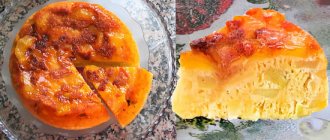Carbohydrates are the “fuel” for metabolism.
Chemical reactions in cells require fuel to occur. Muscles including the heart, biceps, digestive system, and quadriceps use carbohydrates in the form of glucose. Brain cells need twice as much energy as any other cell.
The brain runs exclusively on glucose, using over 20 percent of total calories in a day. Because glucose is so important for brain function, the body maintains glucose levels above a certain level, controlled by a number of hormones.
Carbohydrates in food come in the form of sugars and starches, the main building blocks of which are simple sugars such as glucose and fructose. More complex carbohydrates are formed by combining molecules of simple sugars. Fructose and glucose combine to form sucrose. Long chains of glucose are called starch. During the digestion process, these carbohydrates are broken down into molecules of simple sugars, which are then absorbed into the blood.
Carbohydrates. Glycemic index of foods
There is no summary table or complete list of foods with carbohydrates and specifically recommended doses, such as there is, for example, for vitamins or proteins. Carbohydrates are needed for energy production, so the recommended daily dose will depend on the number of calories needed. To maintain basic body functions such as brain activity and metabolism, you need to eat at least a minimal amount of carbohydrates every day. This number, as the table below shows, is 130 grams/day for children and adults.
1 gram of carbohydrates contains 4 calories, which means 130 grams will equal 520 calories. Most adults' energy needs are twice this number. Additional calories can be obtained from fats, proteins and carbohydrates.
Carbohydrates are best counted as a percentage of total calories for the day. The recommended carbohydrate range ranges from 45 to 65% percent of your total daily calorie intake. For example, if you eat approximately 1,600 calories per day, 50% of which come from carbohydrates, then that would be 200 grams of carbohydrates per day. Athletes need more fuel for training and competition, so there should be a lot more carbohydrates.
Carbohydrates and diet for health and well-being
The main rule is that the daily diet should contain at least half of carbohydrate-containing foods: optimally – 7:3, share 3 is the proportion of food rich in proteins and fats.
But it is important to minimize the amount of fast carbohydrates and completely eliminate simple carbohydrates when dieting for weight loss.
Recommended daily intake of carbohydrates
The norm depends on who you are and what lifestyle you lead. We should all try to avoid refined carbohydrates and foods with added sugar as much as possible. What about the sugars and starches found in whole foods such as fruits, starchy vegetables and whole grains? Nearly half of Americans have insulin resistance, which means they are sensitive to carbohydrates, so they should reduce their intake of not only unhealthy carbohydrates, but also sources of sugar and starch.
Refined flour and obesity
Products containing refined flour often cause metabolic disorders and thus lead to uncontrolled weight gain.
- Excessive use of these types of products makes it almost impossible to lose those extra pounds and fight for your dreams.
- Carbohydrates slow down metabolic processes and increase blood glucose levels. At the same time, they lead to the accumulation of fat, especially in the abdominal area.
- To make matters worse, products made from refined flour not only fatten you up, but also do not satisfy your appetite. As a result, the vicious circle of overeating never closes.
What foods are high in carbohydrates?
Carbohydrates are found in a large number of foods. Products that do not contain carbohydrates are fish and meat, vegetable fats.
Plant foods are the main source of carbohydrates, although grains contain the most.
What foods are carbohydrates? The best carbohydrate foods are considered to be unprocessed whole foods such as fresh fruit, 100% juice, whole grains and a huge range of grain products, most vegetables. This food also contains fiber, vitamins, minerals and antioxidants.
Although vegetables are made up of carbohydrates, most contain small amounts of them due to their high water content.
Foods made from foods high in carbohydrates, such as flour and sugar, will contain large amounts of them, for example. Muffins, pancakes, cakes and donuts, crackers, candy bars, candies, cakes, cookies - these are all high-carbohydrate foods. Drinks with added sugar, honey, corn syrup, and agave syrup are also high in carbohydrates.
It will be interesting to know what protein is made from.
Increases the risk of developing diabetes
People who consume large amounts of foods containing refined flour are more likely to develop diabetes than those who choose whole grain foods.
- Refined flour contains a large amount of simple carbohydrates. They are not a source of energy, but only cause spikes in blood sugar.
- This is especially important for amylopectin. This type of carbohydrate, which is converted into simple sugars, significantly affects blood sugar levels.
What foods contain carbohydrates that are harmful to health?
Refined carbohydrates are quickly absorbed into the bloodstream, causing a sharp rise in blood sugar and insulin levels. The most common chronic diseases of Western civilization are somehow associated with these carbohydrates, so it is important to reduce their amount in the diet to a minimum.
What are refined carbohydrates?
What is the difference between refined and unrefined carbohydrates? It's actually easier to define which carbohydrates are not, because the term "refined" is so confusing. All sugars and starches, except those found in natural whole foods such as fruits, beans or sweet potatoes, are refined carbohydrates. If you see sweet or starchy whole foods that are naturally found in the same foods, you are seeing unrefined carbohydrates.
Refined carbohydrates are a form of sugar or starch that does not occur in nature. They are made from natural whole foods, but during processing and “purification” their internal structure changes. In production, extracts and concentrates are made from natural products, they are purified and subjected to enzymatic modification. It is quite easy to recognize sugar by taste or form; it usually comes in the form of small crystals, powder or syrup. Refined starches are much more difficult to recognize.
What are hulled grains?
Whole grains are seeds (grains) with an outer natural shell. Once the grain is processed in any way, crushed or ground, for example, it becomes refined. What is the essence of this word? The finer the grain, the finer the particles. The smaller the particles, the more refined the grain is considered to be. In other words, the more processed the grain was during the manufacturing process, the less nutrients it retains and the less beneficial it is to human health.
Particle size matters for the speed of digestion. The smaller the particles, the faster they are digested and enter the bloodstream.
Moreover, in addition to conventional grinding, there are other ways to process grains. For example, grinding, heat treatment and spraying. All these processing methods damage or remove the outer shell of the grains, which, on the one hand, reduces the time spent on their preparation, and on the other hand, facilitates the digestion of the starches inside.
Now, let's move on to the lists specifically!
Carbohydrates and diet for weight loss
If your goal is to quickly lose weight, then you can reduce your carbohydrate intake to 50 grams per day. An exact calculation is made based on individual characteristics - per 1 kg of weight you should consume at least 2.5 g of carbohydrates.
For example, a person with a body weight of 55 kg should receive 135-140 g of carbohydrates per day. If a person works physically or engages in active sports, he should receive 5 g of this macronutrient per 1 kg of body weight.
Refined carbohydrates
Refined and simple sugars
- Sugar (also known as sucrose, cane or beet sugar)
- Confectioner's sugar (powdered sugar)
- Brown sugar
- Maple syrup
- Fructose
- Brown rice syrup
- Maltose
- Glucose syrup
- Tapioca syrup
- Rice bran syrup
- Malt syrup
- Sorghum
- Dextran, dextrin, maltodextrin, dextrose
- Syrup
- Sucrose
- Carob syrup
- Fruit juice concentrates
Fruit juices excluding lemon juice and lime juice. Here we are talking about store-bought juices, for the production of which special equipment is used.
In all types of flour, including wheat, corn, oatmeal ,
rice if they are finely ground. Choose better whole grain flour, it has a coarser grind, it takes longer to digest and is healthier.
Instant/refined grains including oatmeal and instant rice, as well as white rice and white rice.
Refined starch, namely corn starch, potato starch, modified food starch - essentially any powdery substance with the word "starch" on the label.
Foods with added sugar and refined carbohydrates
(not a complete list of products, of course)
- All desserts, except those made exclusively from pieces of fruit and berries.
- Ice cream, sorbet.
- Most bread
- Crackers, except those made from whole wheat flour.
- Cookie
- Cakes
- Cupcakes
- Waffles
- Pies
- Cakes
- Candies
- Chocolate (dark, milk and white). Confectionery chocolate is unsweetened and is an exception.
- Food in breadcrumbs
- All test types
- Most cereals except unsweetened and whole grains (sugar-free muesli, oatmeal)
- Pasta, pasta and couscous
- Jello® gelatin (it's best to make your own gelatin from unsweetened gelatin and fresh fruit)
- Jelly, jam, canned food
- Drying
- Pretzels
- Pizza (due to flour in dough)
- Puddings and custards
- Corn chips
- Popcorn with caramel or various syrups
- Most energy bars, including (unless labeled sugar free)
- Rice paper
- Tortilla (unless made with 100% whole wheat flour)
- Corn and rice cakes (unless made with whole wheat flour)
- Panko breading mixture
- Crackers
- Fried vegetable snacks such as carrot and green bean chips (usually contain dextrin, a sweet starch)
- Ketchup
- Mustard
- Most BBQ Sauces
- Check labels on salad dressings, tomato sauces, or other canned/jared sauces for sugar/sweeteners.
- Sweet yoghurts and other dairy products with added sugar
- Roasted nuts with honey
- Sweet soda drinks
- Chocolate milk and other sweetened milks
- Condensed milk
- Cocoa
- Most milk substitutes (almond milk, soy milk, oat milk) contain sugar
- Sweet wines and liqueurs
Products containing refined carbohydrates and how they can be replaced
Food is not just a tasty dish. Nutrition should primarily provide health benefits. Food should contain nutrients, not just empty calories.
List of foods that contain refined carbohydrates:
- white refined sugar and all sweets containing it: cakes, sweets, sweet water, pastries, jam;
- condensed milk (almost 50% of it is sucrose);
- sweet curd mass (often contains sugar and starch at the same time);
- artificial honey, there is no benefit in it, only taste;
- premium wheat flour and all products made from it: white bread, buns;
- polished rice;
- semolina;
- clarified juices with sugar;
- corn sticks, sweet muesli and breakfast cereals;
- starch, which is often added to store-bought yogurts, desserts, boiled sausages, ketchups and other sauces.
You don't have to think that brown sugar is healthy. Although it is less purified, it is also contraindicated for diabetics, like white.
It is not so difficult to find a worthy replacement for these harmful products.
Here are some tips to make your diet healthier:
- Use whole grain flour or add bran, flax seeds, sunflower seeds, and fiber to regular white flour when kneading dough. All these ingredients can be found commercially.
- Pay attention to porridges and dishes made from a mixture of grains, and wild rice.
- Cook oatmeal with herbs and cheese or fresh fruit and nuts, instead of a sweet mixture from bags.
- Instead of sugar, use a little natural honey, fresh and dried fruits, add fruit puree or dried fruits to baked goods.
- Do not drink clarified juices, but eat greens, vegetables and fruits rich in fiber and pectin, or switch to juices with pulp.
- Make drinks from mint, tarragon, and other herbs at home instead of store-bought soda.
It is not so difficult. For example, instead of harmful caramel made from sugar with flavors, children can be given a healthier candy made from prunes with nuts, albeit in chocolate.
Products containing no or minimal refined carbohydrates/sugars
- Fresh/frozen meat, poultry and seafood not in prepared form.
- Eggs
- Fresh and frozen fruits
- All vegetables
- Whole grains
- Nuts and seeds
- Unsweetened nut butter
- Unsweetened coconut
- Popcorn
- 100% whole wheat rice cakes
- Legumes (beans, peas, lentils)
- Guacamole
- Unsweetened salsa
- Vegetable tapenade
- Olives
- Pickles without added sugar
- Soy products (tofu and unsweetened soy milk)
- Unsweetened, natural dairy products (milk, regular yogurt, cheese, butter, sour cream, semi-fat cream, cream)
- Bread and crackers made from 100% whole grain flour without sugar
- Unsweetened tomato sauces and other unsweetened pastes and sauces without starch
- Unsweetened salad dressings (ranch sauce, Blue Cheese, Italian and Greek sauces, Caesar salad dressing)
- Herbs and seasonings
- Oils
- Sugar-free vinegars (balsamic vinegar and some other fruit vinegars are very sweet - check the label)
- Soy texture
- Seitan
- Tempe
- Unsweetened coffee, tea or soda (with natural flavors and ingredients), water
- Most red wines. Dry white wines. Alcoholic drinks containing carbohydrates and alcohol (whiskey, gin, vodka)
Carbohydrates and the right weight loss tactics
The right foods for effective weight loss are those that are rich in fiber and have a low glycemic index because they are broken down slowly in the body.
The products needed in this case are unsweetened: cruciferous vegetables, greens, legumes, cereals.
You should eat carbohydrates only for breakfast and lunch, and the evening menu should consist of protein foods. Satisfy the need for something sweet and tasty by eating nuts - this will delight the taste buds and perfectly support physical strength: 10 nuts will not harm you and will provide you with a sufficient amount of nutrients.
Nutritionists advise eating porridge, sunflower seeds, fiber-rich white cabbage, and sour apples. Apricots, cranberries, and fresh cucumbers will provide the body with pectin during the diet; buckwheat, rice, and pasta are also healthy and allowed.
In the desire to maintain physical health and make a slim figure, the main thing is not to overdo it, and not to forget that even in a diet mode, you should provide the body with nutrition that contains a complete, balanced complex of vitamins, macroelements, which include carbohydrates, and microelements .











